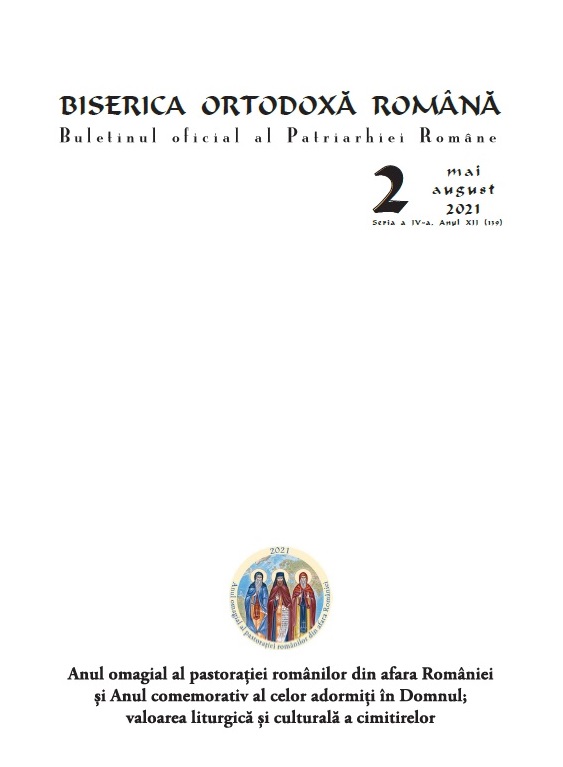Ion Popescu-Pasărea. Reprezentant de seamă al muzicii românești
Ion Popescu-Pasărea – an outstanding representative of Romanian church music
Author(s): Vasile VasileSubject(s): Museology & Heritage Studies, Music, Recent History (1900 till today), Eastern Orthodoxy
Published by: Editura Institutului Biblic și de Misiune Ortodoxă
Keywords: chanter’s status; Byzantine music; specialized anthologies; cadence formulas; semiographic transcriptions, florilegia for children;
Summary/Abstract: Although he is the most important personality of Romanian church music of the first half of the 20th century – as its most important practitioner and an advocate for preserving and perpetuating the traditional forms of Byzantine music – Ion Popescu-Pasărea has fallen into undeserved oblivion, from which his work and especially his creation ought to be retrieved. His output includes important anthologies of church chants and writings on church music theory and history. Due importance should be attached to his discovery of the exceptional role played by the cadence formulas of liturgical chanting, because they are the main element connecting the two manners of practing it: texts accompanied by music notation, and texts whose melodic line is produced by the chanter, according to set patterns (prosomia). Cadence formulas, which are essential in ensuring the correspondence between these two forms of musical production, are systematically expounded in his work: Principles of Eastern (psaltic) church chanting, published in several editions as a complement to Anton Pann’s Theoretical and practical basis of church music. This work has been justly considered as the key to church music of Byzantine origin, because it connected the theory of Byzantine music and its application in hymns accompanied by music notation – on the one hand – and the oral production of the melodic lines for liturgical texts accompanied only by the mention of tone, beat, and the name of prosomion, on the other hand. Known as the last among the classics of church singing, Popescu-Pasărea conducted his multifaceted, sustained activity along at least eight directions, presented systematically in this study: as a psaltist (chanter) at various important churches in Bucharest; as a professor of psaltic music at the two Theological Seminaries in Bucharest, Nifon and Central (1893 - 1936), at the School of Church Chanters, at the Bucharest Conservatoire (1905 - 1912) and the Academy of Religious Music (1928 - 1941); as founder of the Cultural Society (1910) and „Părintele Macarie (Father Makarios)” group for music studies (1915), founder of the General Association of Church Chanters in Romania, founder and director of liturgical music journals Cultura (1911 - 1941) and „Cultura stranei” (launched in 1919); as author of music theory works and anthologies of chants of collective authorship or works of other composers; as conductor of the choir of Saint Ilie – Kalinderu Church (1898 – 1923); as author of liturgical music, as well as extra-liturgical or lay compositions, and harmonizations employing both the Byzantine and the Guidonic semiographies. Posterity should also acknowledge his merit in campaigning for the improvement in the status of chanters, as senator Ion Popescu-Pasărea created the association of church chanters, their trade union, their bank, their anthem, and their prestigious journal.
Journal: Revista Biserica Ortodoxă Română, Buletinul oficial al Patriarhiei Române
- Issue Year: 2021
- Issue No: 2
- Page Range: 289-321
- Page Count: 33
- Language: Romanian

